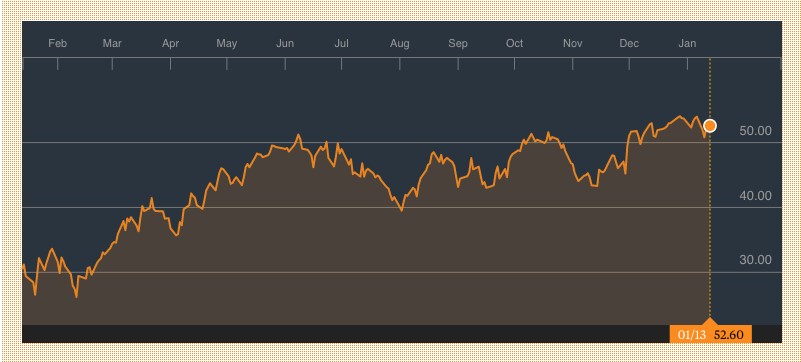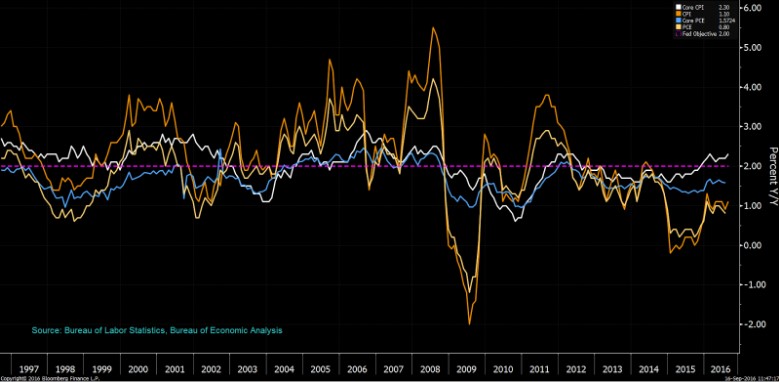The link between oil and interest rates
Housing and politics have been grabbing our attention on the blog in recent weeks, so this week I'm pivoting to another major metric to watch: Oil prices.
Crude oil prices have been up and down this week as investors considered how prices in 2017 will be impacted by OPEC's pledged production cuts. Meanwhile, fracking in the U.S. is showing new signs of life as the price of a barrel of oil rose at the end of last year. Shale oil is most cost-effective when prices are above $50 a barrel. So, with oil prices now above $52 a barrel, domestic shale oil drillers have been adding new rigs consistently, indicating increased U.S. production on the horizon.
These two dynamics occurring at the same time are pushing in opposite directions on the market. OPEC's announcement in December to reduce production by 1.2 million barrels a day is slated to take oil off the market, while U.S. drilling is expected to add new supply. How those forces play out will ultimately drive oil prices up or down this year.

What does this have to do with mortgage interest rates?
Inflation. Oil prices can have a profound impact on inflation if energy prices rise, the price of fuel increases and goods and services cost more as a result. And inflation likely means higher rates. While there isn't always a direct correlation, rising oil prices can affect interest rates. And in our current environment, it's a real possibility.
Energy counts just 7 percent in the consumer price index (CPI), the most popular measure of inflation. However, large price swings can have an impact on inflation, while also indirectly inflating the cost of other items. Deutsche Bank recently reported the correlation between monthly changes in energy prices and the headline CPI is a remarkable 0.96.
So given oil's influence on inflation, we can project an impact on mortgage rates. The Federal Reserve has a goal to keep inflation at or below 2 percent annually. There is mounting pressure now on the Fed to begin hiking target interest rates to head off inflation in 2017 and beyond.
After almost 10 years of near-zero rates, the Fed is now becoming more sensitive to inflationary pressures, such as rising wages (December saw the biggest increase in average hourly earnings in a decade), corporate income and President-elect Trump's plans to increase federal spending.
If oil prices add one more pound of pressure to the inflation trend, you can expect interest rates to keep rising.

What if oil prices fall?
The flipside of the coin is the dynamic we saw earlier this year. If for some reason, domestic oil production in the U.S. pushes OPEC to increase production, create a glut and force prices back down, inflation related to energy prices will subside.
Additionally, interest rates will feel more downward pressure. Why? Low oil prices are harmful to oil-producing countries such as Venezuela, Russia and much of the Middle East. When their economies suffer from cheap oil, global investors move money to bonds in stronger economies, such as the United States.
When investors look for safe havens, more dollars move into US Treasurys. Prices rise and yields fall. Mortgage rates tend to follow the yield on the 10-Year Treasury. Therefore, cheap oil = weak oil economies = buy U.S. Treasurys = lower mortgage rates.
Oil prices are certainly not always an accurate gauge on rates. However, understanding the dynamic should shed some light on the relationship and how to temper expectations based on development in the energy markets.
Rates this week
National mortgage rates on average dipped some this week as the markets reacted to last week's mixed results from the December jobs report. Wages were up, but the labor force continued to shrink.
As a result, Treasury yields decreased and average 30-year mortgage rates this week dropped about eight basis points, according to Freddie Mac's weekly survey.


